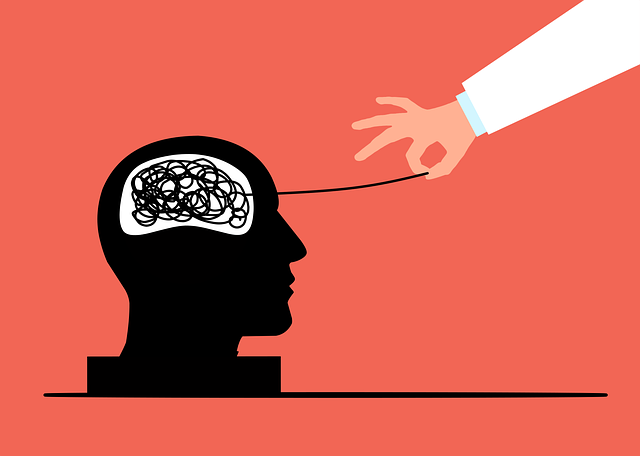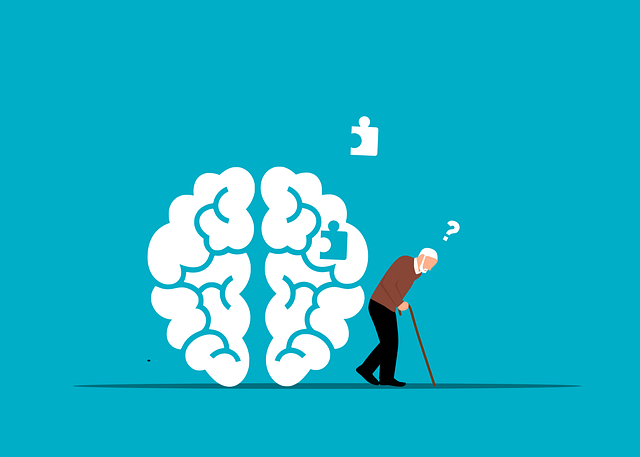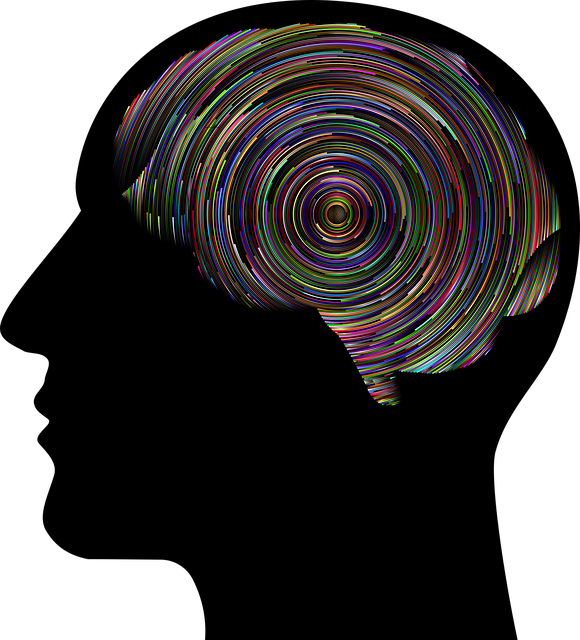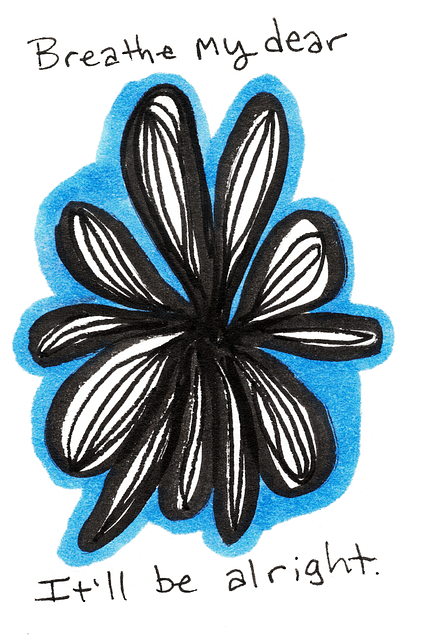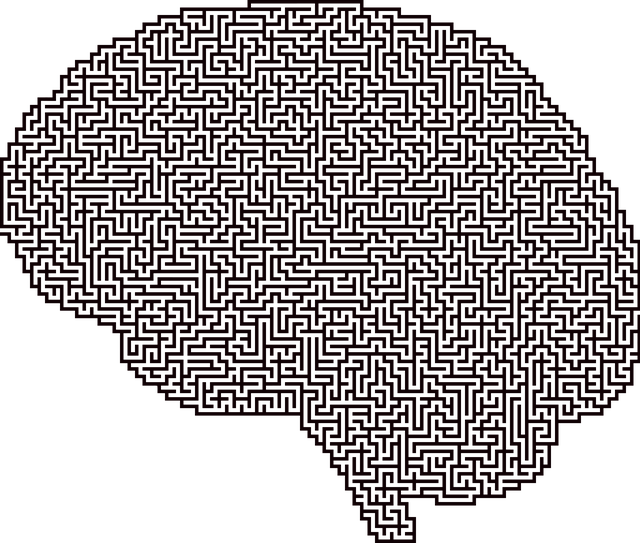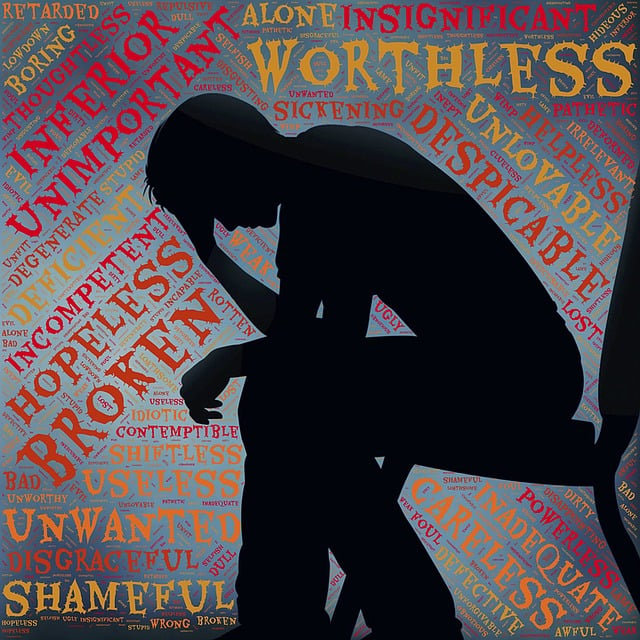Many people experience spiritual-religious distress from doubts, faith questions, or disconnection, which can impact their emotional well-being and mental health significantly. Therapy for Spiritual-Religious Issues offers a safe space to explore these concerns, teaching healthy coping mechanisms like meditation and journaling. This therapy includes crisis intervention, self-care routines, and tools to manage anxiety, improve emotional regulation, and build resilience. By integrating spiritual practices into daily life, individuals can enhance their mental wellness, gain clarity on their spiritual paths, and develop lasting strategies for future challenges. Healthcare providers can support this through cultural competency training, while structured routines, stress management workshops, and faith-based groups facilitate personal growth and improved mental health.
Coping skills development is essential for navigating life’s challenges, especially spiritual-religious distress. This article delves into understanding and addressing these issues through diverse approaches. We explore the role of therapy in managing spiritual struggles, providing practical coping skills for personal growth, and integrating spiritual practices into daily life. Discover how professional support and self-care strategies can enhance your overall well-being, particularly when confronting therapeutic challenges related to spiritual beliefs.
- Understanding Spiritual-Religious Distress
- The Role of Therapy in Addressing These Issues
- Effective Coping Skills for Personal Growth
- Integrating Spiritual Practices into Daily Life
Understanding Spiritual-Religious Distress

Many individuals experience spiritual-religious distress at some point in their lives, often stemming from questions about one’s faith, doubt, or a sense of disconnection. This internal conflict can significantly impact emotional well-being and mental health. Therapy for spiritual-religious issues offers a safe space to explore these concerns and navigate through them. It provides individuals with the tools to process their thoughts and feelings related to religion and spirituality in a healthy manner.
The process involves developing self-care routines for better mental health, which can include practices such as meditation, journaling, or engaging in activities that foster emotional well-being promotion techniques. Crisis intervention guidance is also beneficial, helping individuals cope with sudden spiritual crises and providing strategies to manage their distress effectively.
The Role of Therapy in Addressing These Issues

Therapy plays a pivotal role in addressing spiritual-religious issues that can significantly impact mental health. It provides a safe space for individuals to explore and process their beliefs, fears, and doubts related to faith transitions, spiritual crises, or conflicts between personal values and societal norms. Through therapy, individuals can gain clarity on their spiritual journeys, learn coping strategies to manage anxiety relief, and develop resilience in the face of adversity.
For mental health professionals, integrating risk management planning is essential when addressing these delicate matters. By applying mind over matter principles, therapists can help clients challenge negative thought patterns, enhance emotional regulation skills, and foster a sense of inner peace. This holistic approach ensures that individuals not only cope with current challenges but also develop long-lasting strategies for navigating future spiritual or religious issues effectively.
Effective Coping Skills for Personal Growth

In today’s fast-paced and sometimes stressful world, developing effective coping skills is essential for personal growth and overall mental wellness. Coping strategies act as our tools to navigate through life’s challenges, whether they be emotional, physical, or spiritual in nature. For individuals seeking support for spiritual or religious issues, therapy plays a pivotal role. Therapy for spiritual-religious concerns provides a safe space to explore one’s beliefs, values, and practices, helping them integrate these aspects into their overall coping arsenal.
One powerful coping skill that can be fostered through therapy is self-awareness. By understanding one’s thoughts, emotions, and behaviors, individuals gain insights that enable them to respond thoughtfully rather than reacting impulsively. Additionally, maintaining a mental wellness journal has been shown to be an effective exercise in cultivating self-awareness and promoting personal growth. This simple yet profound practice involves recording one’s experiences, thoughts, and feelings, which can help identify patterns and triggers, enhancing overall emotional intelligence. Healthcare providers can also benefit from cultural competency training to offer more tailored support, especially when addressing spiritual-religious matters within diverse communities.
Integrating Spiritual Practices into Daily Life

Incorporating spiritual practices into daily routines can be a powerful tool for coping skills development and enhancing mental wellness. Many individuals find solace and strength through religious or spiritual beliefs, which can provide a sense of purpose and resilience during challenging times. By integrating prayer, meditation, or mindfulness exercises, one can create a personal ritual that promotes inner peace and self-reflection. These practices have been shown to reduce stress, improve mood, and enhance overall well-being—benefits that are especially relevant in today’s fast-paced world.
For those dealing with spiritual-religious issues or seeking therapy for such concerns, incorporating these practices into a structured routine can be transformative. Stress management workshops and organization of support groups centered around faith can provide individuals with a sense of community and guidance. Moreover, mental health professionals should consider risk management planning when addressing spiritual-religious aspects, ensuring they are equipped to offer sensitive and effective care, thereby fostering healthier minds in their clients.
Coping skills development is a holistic process that integrates spiritual practices and therapy for addressing spiritual-religious distress. By understanding these issues, leveraging therapeutic interventions, adopting effective coping skills, and incorporating spiritual practices into daily life, individuals can foster personal growth and enhance their overall well-being. Through this comprehensive approach, one can navigate the complexities of life with resilience and purpose.


